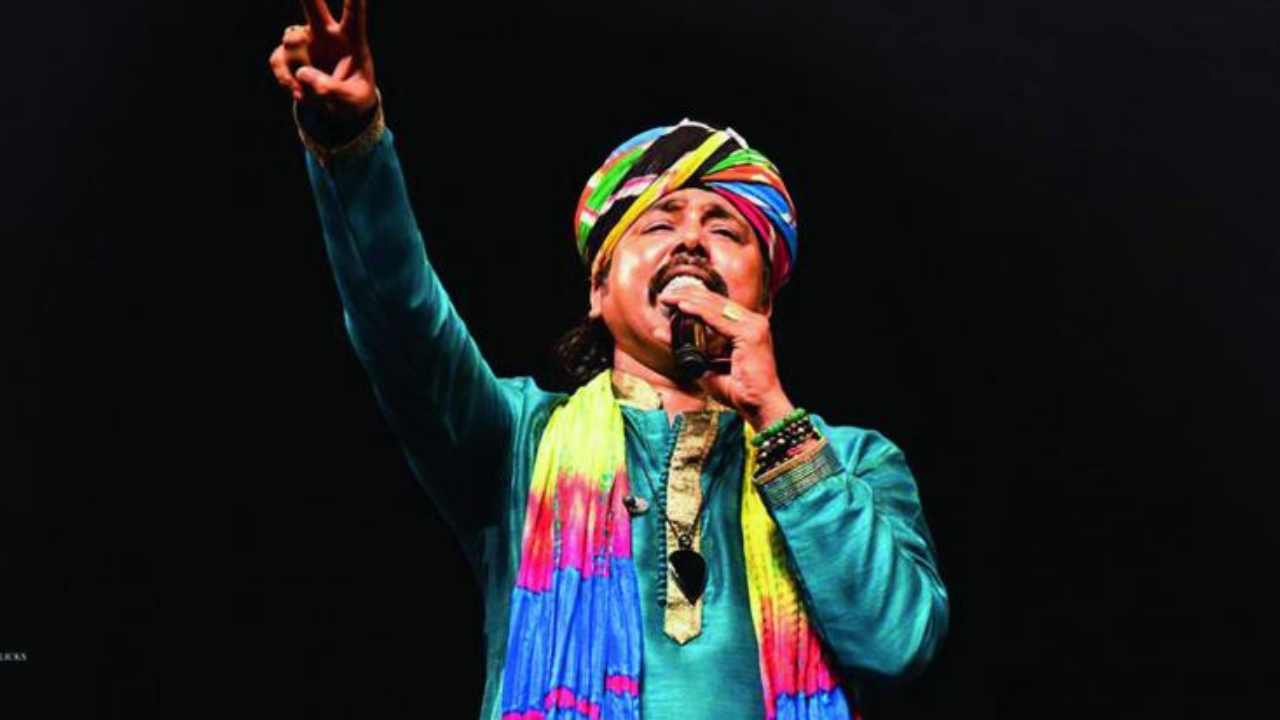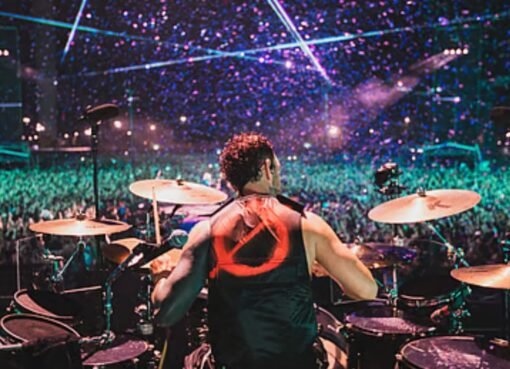Mame Khan Is On a Mission to Take Indian Folk Music to the World

He launches into Dama Dam Mast Kalandar 2.0 with echoing sarangi and harmonium, only to find them met by shimmering synths and rap verses. The new version of the desert wedding anthem comes alive with Mame Khan’s powerful voice layered over AJRaps’s rhythm and modern beats. The collision of folk tradition and fresh experimentation marks a turning point in how we hear Rajasthani music today.
Mame Khan, a proud son of Rajasthan’s Manganiyar community, is more than a singer. He’s a cultural explorer. He grew up in Satto village, Jaisalmer, surrounded by music embedded in daily life. His father, Ustad Rana Khan, was a folk singer. Morning until night, Khan soaked in every note and narrative. That root in tradition gave him the courage to bend it without breaking the core.
From his breakthrough Coke Studio duet “Chaudhary” with Amit Trivedi in 2011 to leading his Folk Orchestra of Rajasthan with over 50 musicians and walking the red carpet at Cannes in 2022, Mame Khan has broken ceilings many thought unbreakable. He’s carried that legacy into modern spaces while honoring his culture.
In a recent conversation, he summed up his mission simply: music is an endless search. People will fade, generations will pass, but music will never end. He’s exploited that belief by introducing rap and synth into his folk sound. And it works.
That creative courage was on full display in Dama Dam Mast Kalandar 2.0, his latest effort with AJRaps. Khan brings ancient chhand structure, and AJRaps delivers modern flow. The result feels familiar, yet revolutionary. He calls it a vision for the future of folk.
While some may call it fusion, Khan rejects confusion. He grabs a ghoomar rhythm, threads it through synth layers, and lets the khartaal and sarangi shine. It’s rooted experimentation, respectful and bold.
With backing from Warner Music India and JetSynthesys, Khan isn’t keeping this within niche folk circuits. He’s aiming at global audiences. Youth, old-school listeners, experimental music fans—they all find something familiar, surprising, or inspiring in his work.
What we see in Mame Khan is true revival. He’s showing how traditional folk can evolve without losing its soul. He performs with showmanship, colors each note with cultural pride, and offers an entry point for listeners unfamiliar with Rajasthani music. It’s folk music on its own terms, made accessible for today’s world.
At Sound of the Streets India, we believe Mame Khan’s journey from village performances to global stages, folk orchestras to rap-infused hits, speaks to the power of roots meeting innovation. His music isn’t just history. It’s living, breathing tradition charged with tomorrow.



Leave a Comment